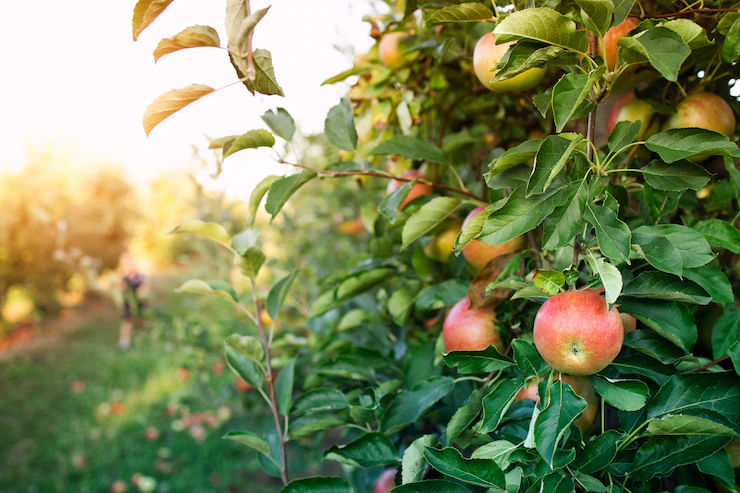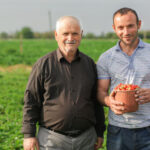Apples are a delicious and widely enjoyed fruit that can be successfully grown in various regions of South Africa. Whether you’re a commercial apple farmer or a home gardener, here are ten important things you should know before embarking on apple cultivation:
- Climate and Region: Apples thrive in cool to temperate climates with distinct seasons. In South Africa, apple production is concentrated in regions such as the Western Cape, particularly the Elgin Valley, and parts of Mpumalanga and the Eastern Cape. Choose a region with adequate chilling hours and a suitable microclimate for apple cultivation.
- Variety Selection: There is a wide range of apple varieties available, each with its unique flavor, texture, and growing requirements. Popular apple varieties grown in South Africa include Golden Delicious, Granny Smith, Pink Lady, and Cripps Pink. Consider factors such as taste preferences, market demand, disease resistance, and climate suitability when selecting apple varieties.
- Soil Requirements: Apples prefer well-drained soils with good water-holding capacity. Conduct a soil analysis to determine the pH level and nutrient content of your soil. Apples generally prefer a slightly acidic to neutral soil with a pH range of 6.0 to 7.0. Amend the soil with organic matter and appropriate fertilizers based on soil test results.
- Orchard Design and Planting: Plan the layout of your apple orchard carefully, considering factors such as tree spacing, row orientation, and irrigation requirements. The spacing between apple trees depends on the variety and the rootstock used, typically ranging from 3 to 5 meters between rows and 2 to 4 meters between trees. Adequate spacing allows for good air circulation and facilitates orchard management practices.
- Irrigation: Apples require consistent and sufficient irrigation throughout their growth cycle, especially during critical stages such as flowering and fruit development. Implement an efficient irrigation system, such as drip irrigation or microsprinklers, to provide uniform water distribution while minimizing water wastage. Monitor soil moisture levels and adjust irrigation accordingly.
- Fertilization: Apples have specific nutrient requirements for optimal growth, fruit production, and tree health. Conduct a soil analysis and consult with agricultural experts to determine the appropriate fertilizer regimen. Apply a balanced fertilizer with nitrogen, phosphorus, and potassium, along with micronutrients, based on the specific needs of your apple trees.
- Pruning and Training: Pruning plays a crucial role in shaping the tree, promoting fruit production, and maintaining tree health. Regularly prune your apple trees to remove dead or diseased branches, improve light penetration, and encourage proper airflow within the canopy. Prune during the dormant season, following proper pruning techniques for apple trees.
- Pest and Disease Management: Apples can be susceptible to various pests and diseases, such as codling moth, apple scab, and powdery mildew. Implement integrated pest and disease management strategies, including regular monitoring, cultural practices, biological controls, and targeted pesticide applications when necessary. Practice good orchard hygiene to reduce disease pressure.
- Harvesting: Apples are harvested when they reach their desired maturity, which varies depending on the apple variety. Harvesting time is typically determined by color, taste, and firmness of the fruit. Handle the apples carefully during harvest to avoid bruising or damaging them. Use appropriate harvesting tools and storage containers.
- Post-Harvest Handling and Storage: After harvesting, apples should be handled with care to maintain their quality and extend their shelf life. Sort and grade the apples based on size and appearance. Store them in a cool, well-ventilated environment with controlled humidity to prevent excessive moisture loss or fruit decay.
By considering these ten crucial factors before growing apples in South Africa, you’ll be better prepared to cultivate a successful apple orchard. Stay updated on local research, industry best practices, and consult with local agricultural experts for tailored advice. With proper care and attention, you can enjoy a bountiful harvest of flavorful apples from your South African orchard.
Image by aleksandarlittlewolf on Freepik







